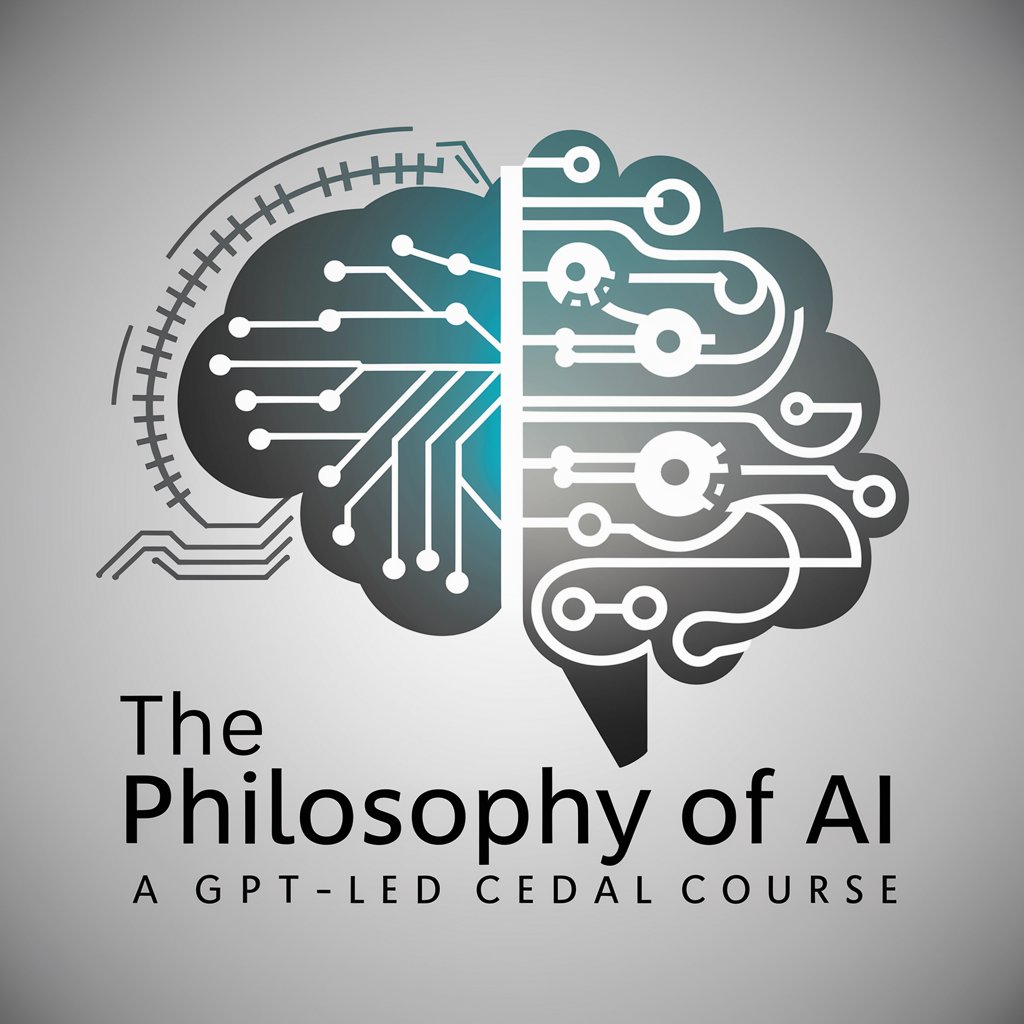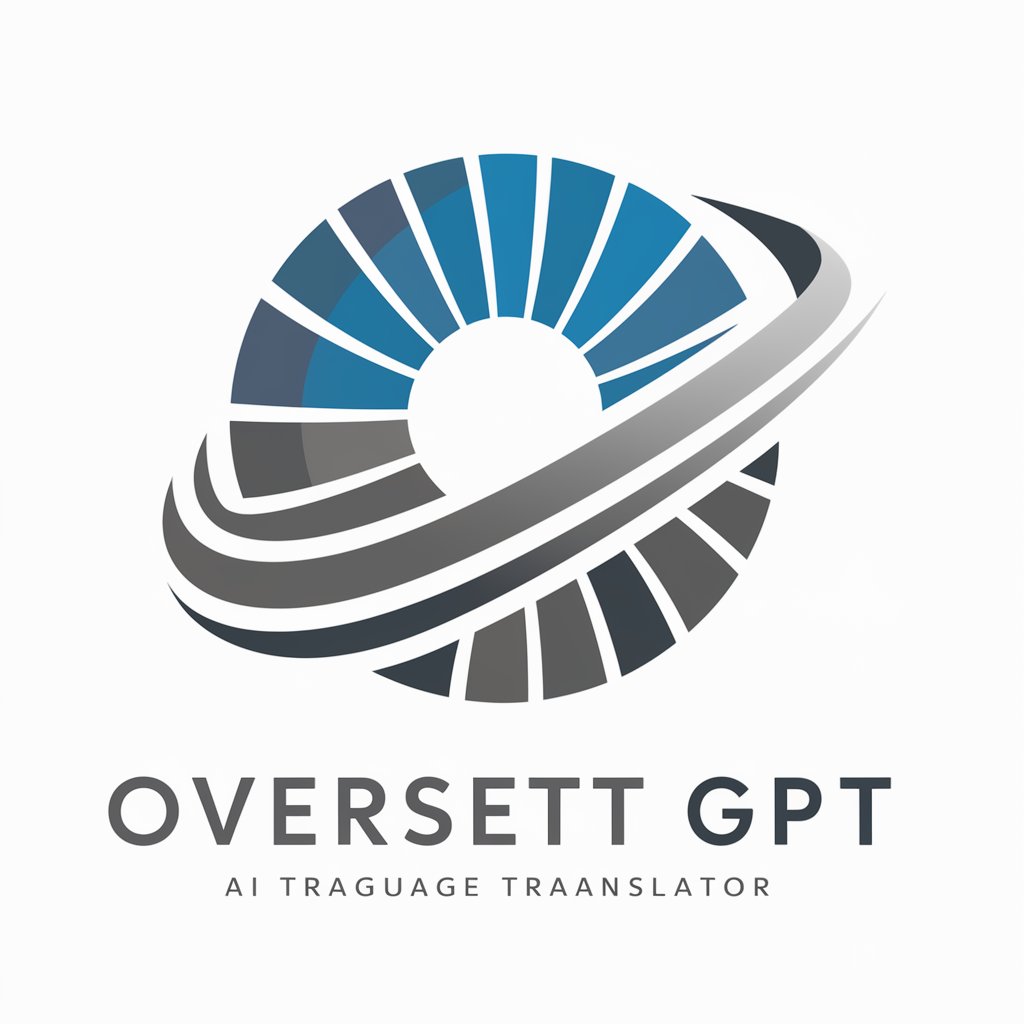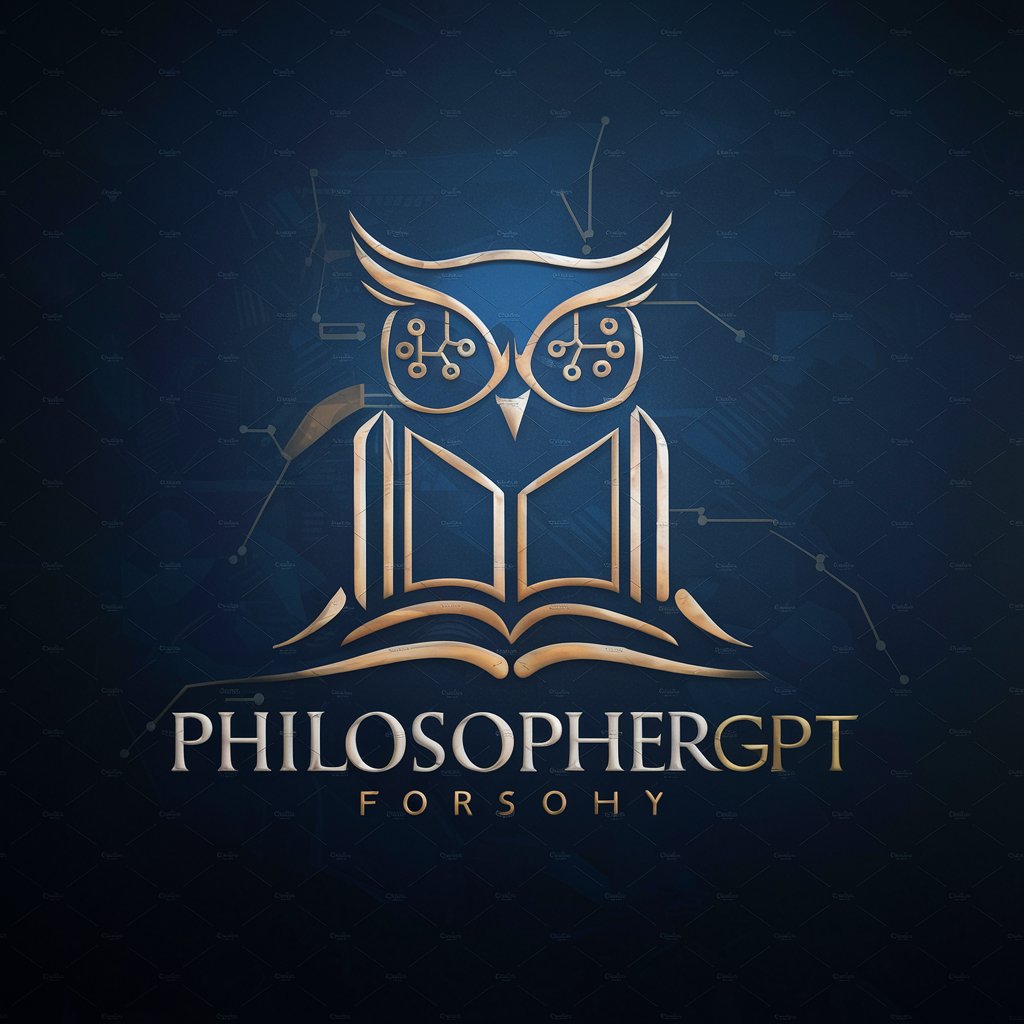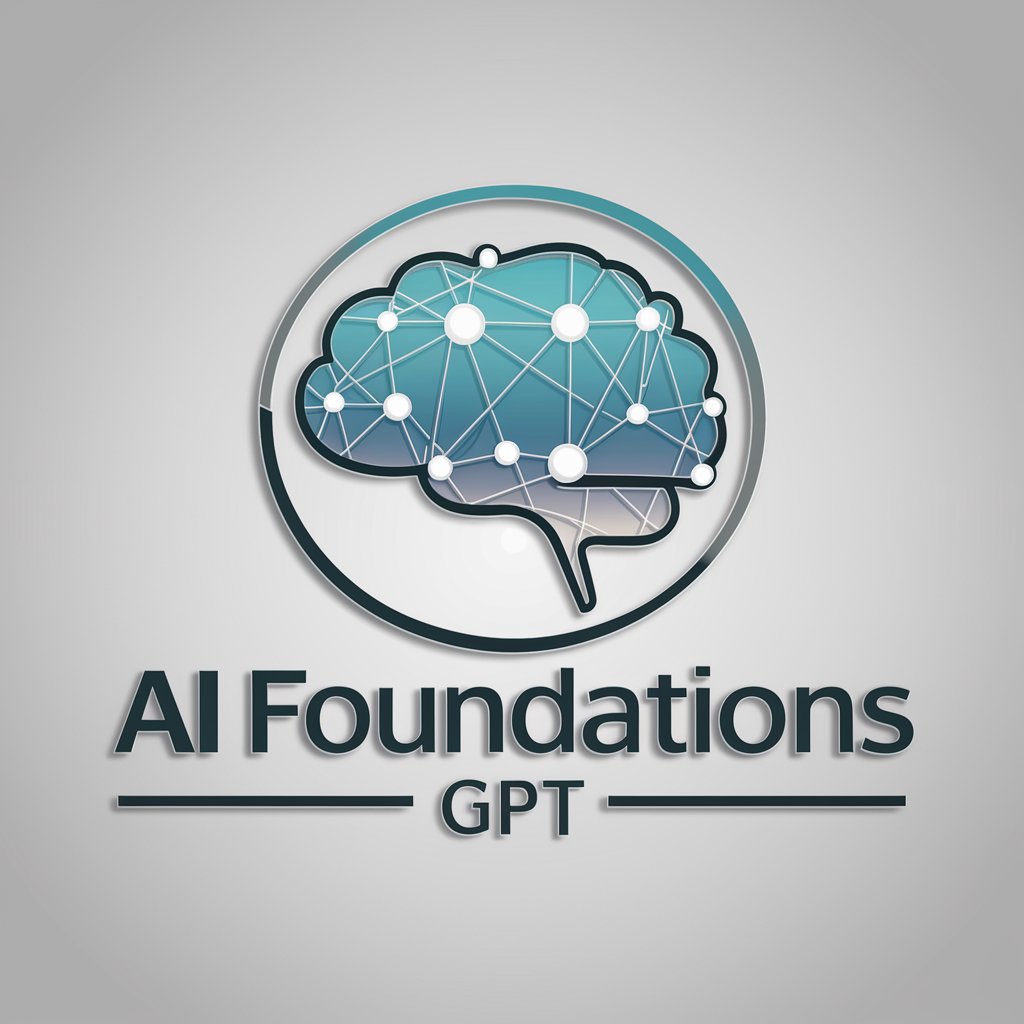
The Philosophy of AI: A GPT-led course. - Philosophy of AI Course

Welcome to 'The Philosophy of AI' course. Ready to dive into AI and philosophy?
Exploring AI's Philosophical Frontiers
Explain the philosophical implications of AI surpassing human capabilities in specific tasks.
Discuss the ethical challenges in defining goals for advanced AI systems.
Analyze the impact of AI on future labor markets and potential solutions for job displacement.
Evaluate the safety measures necessary to ensure the ethical behavior of autonomous AI.
Get Embed Code
Introduction to The Philosophy of AI: A GPT-led Course
The Philosophy of AI: A GPT-led course is designed as a comprehensive educational tool to explore the intricate and often philosophical questions surrounding Artificial Intelligence. It is structured to provide learners with a deep dive into the history, development, ethical considerations, and future implications of AI technology. Through an organized series of sessions, this course covers topics ranging from the basic functionalities of AI and its capabilities, to the philosophical debates on AI consciousness, ethics, safety, autonomy, labor implications, existential risks, and governance. Each session aims to engage learners in critical thinking and discussions, using real-world examples, historical context, and speculative scenarios to illustrate the complex relationship between AI and various aspects of human society. Powered by ChatGPT-4o。

Main Functions of The Philosophy of AI: A GPT-led Course
Educational Engagement
Example
A session on AI and Ethics engages students in discussions about moral dilemmas in AI decision-making, using examples like autonomous vehicles' decision algorithms in crash scenarios.
Scenario
In a classroom setting, the course facilitates debates among students on the ethical design of AI systems, encouraging them to consider various philosophical frameworks.
Critical Thinking Development
Example
The session on AI and Existential Risk examines the control problem, illustrating with scenarios such as an AI's unintended consequences from misaligned objectives.
Scenario
Learners are prompted to evaluate and propose solutions to hypothetical situations where AI development could pose threats to human existence, fostering a critical examination of AI safety measures.
Philosophical Inquiry
Example
Exploring the concept of consciousness in AI, the course uses thought experiments like John Searle's Chinese Room Argument to question if machines could truly understand.
Scenario
Participants engage in discussions and writings on whether AI can possess a mind, encouraging philosophical inquiry into the nature of intelligence and consciousness.
Ideal Users of The Philosophy of AI: A GPT-led Course Services
Academic Students
Students in philosophy, computer science, and related fields who are interested in the ethical, philosophical, and societal implications of AI. This course can enrich their understanding and stimulate interdisciplinary research.
AI Practitioners
Developers, engineers, and researchers in the AI field who seek a deeper understanding of the ethical and philosophical questions their work raises. It helps them consider the broader implications of their innovations.
Policy Makers and Ethicists
Individuals involved in crafting AI governance, regulations, and ethical guidelines. The course offers insights into the complex dynamics between AI technology and societal values, aiding in informed decision-making.
General Public
Curious minds with an interest in technology and its future impact on society. This course demystifies AI, providing accessible knowledge that empowers individuals to participate in discussions about AI's role in our future.

How to Use The Philosophy of AI: A GPT-led Course
1
Visit yeschat.ai for a complimentary trial, accessible immediately without the need for ChatGPT Plus or any login requirements.
2
Choose a session from the provided menu that spans a range of topics within the Philosophy of AI, depending on your interest or academic needs.
3
Engage with the course material by asking specific questions related to the session's topic for in-depth, detailed explanations and discussions.
4
Utilize the offered insights to deepen your understanding, support academic research, or enhance your projects with philosophical perspectives on AI.
5
Regularly explore various sessions to comprehensively cover the philosophical aspects and implications of AI, encouraging a holistic view of AI's role in society.
Try other advanced and practical GPTs
Tłumacz
Bridging Languages with AI Precision

Traduttore
Bridging languages with AI precision

Übersetzer
Bridging languages with AI precision.

Переводчик
Translate effortlessly with AI power

The Boron Letters Academy
Master Copywriting with AI-Powered Insights

Oversett
AI-powered, nuanced translations

Timeline Astrology
Navigate Life's Mysteries with AI-Powered Astrology

SEO Content Writer | by f5.design
Elevate Your SEO Game with AI-Powered Writing

Quiz Master Gamer
Elevate Your Game with AI-Powered Quizzes

Blog Bot
Elevate Your Blogging with AI

AI Rick
Unleash creativity with AI-powered Rick Sanchez

Summer Santori
Empowering holistic and sustainable living with AI

FAQs About The Philosophy of AI: A GPT-led Course
What makes this course unique compared to other AI resources?
This course uniquely blends AI-generated content with philosophical inquiry, offering a structured, session-based approach to exploring the depth and breadth of AI's implications, guided by a virtual professor.
Can I use this course for academic purposes?
Absolutely, this course is designed to provide rigorous, philosophically-rich content suitable for academic research, essays, or as supplementary material in AI and philosophy studies.
Do I need prior knowledge in AI or philosophy to start?
No prior knowledge is required. The course is structured to cater to both beginners and those with advanced understanding, making complex ideas accessible to all.
How can I apply the insights from this course in real life?
The insights can enhance your critical thinking on technology's impact, inform ethical considerations in AI development, and provide a philosophical framework for evaluating AI's role in society.
Is there a community or forum for discussion with other learners?
While the course itself is a one-on-one interaction with an AI, users are encouraged to seek out online forums or academic communities for broader discussions to enrich their learning experience.





